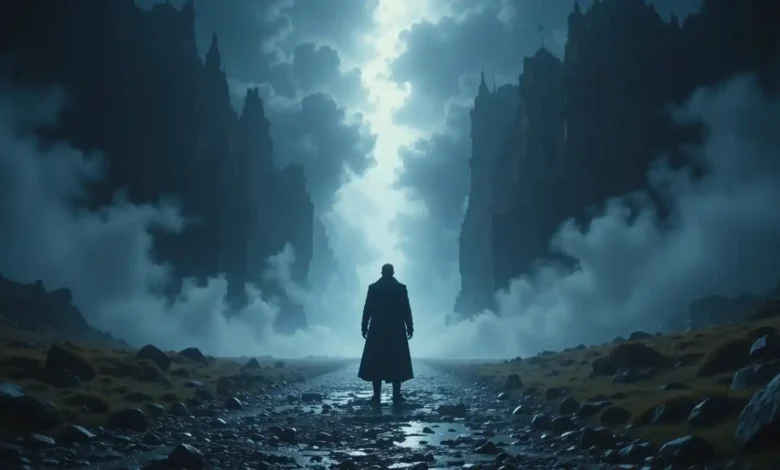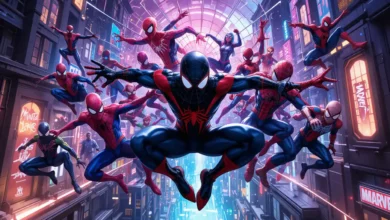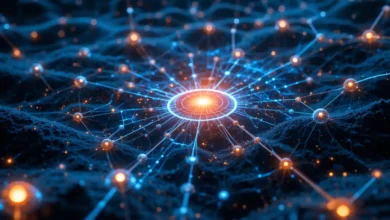Canon Event Explained: A Deep Dive into Storytelling Mastery

Introduction
Storytelling is an ancient art, evolving through oral traditions, written manuscripts, and modern media. One crucial element in crafting compelling narratives is the concept of a canon event. These pivotal moments can define the trajectory of a story, ensuring consistency and continuity across different works within the same universe. This blog post will explore what a canon event is, its importance, and examples from various media. By understanding these events, readers can better appreciate the intricate craftsmanship involved in creating cohesive and engaging stories.
What is a Canon Event?
A canon event refers to a significant occurrence within a fictional universe that is considered official and integral to the storyline. These events are recognized as part of the “canon,” meaning they are accepted as authentic and authoritative within the narrative. Canon events can shape characters, influence plots, and establish lore that other stories within the same universe must adhere to.
Characteristics of Canon Events
Canon events typically have the following characteristics:
- Official Recognition: They are acknowledged by the creators as part of the core storyline.
- Pivotal Impact: These events significantly impact the plot, characters, or world-building.
- Consistency: They maintain continuity across various works, ensuring a cohesive narrative.
- Influence on Future Events: Canon events often set the stage for future plot developments and character arcs.
The Importance of Canon Events in Storytelling
Canon events play a vital role in storytelling, especially in expansive universes with multiple installments. They provide a framework that guides the narrative, ensuring consistency and continuity. This section will explore the importance of canon events in various aspects of storytelling.
Maintaining Continuity
In complex narratives, especially those spanning multiple books, films, or series, maintaining continuity is essential. Canon events help ensure that the story remains consistent, preventing plot holes and contradictions. For example, in the Marvel Cinematic Universe (MCU), the Battle of New York is a canon event that influences numerous subsequent films and TV shows, providing a touchstone for the shared universe.
Character Development
Canon events often serve as critical junctures in character development. These moments can shape a character’s motivations, actions, and growth throughout the story. In J.K. Rowling’s Harry Potter series, the death of Harry’s parents is a canon event that profoundly affects his character and drives much of the series’ plot.
World-Building
Canon events contribute significantly to world-building by establishing key historical moments, cultural practices, and societal norms within the fictional universe. In George R.R. Martin’s A Song of Ice and Fire, the Targaryen conquest of Westeros is a canon event that sets the foundation for the political landscape of the series.
Audience Engagement
Canon events can enhance audience engagement by providing a shared reference point for fans. These moments often become iconic within the fandom, generating discussion, analysis, and fan theories. For instance, the “Red Wedding” in Game of Thrones is a canon event that sparked widespread reaction and debate among viewers.
Examples of Canon Events in Popular Media
To better understand the concept of canon events, let’s examine examples from various popular media, including literature, film, and television.
Literature: The Deathly Hallows in Harry Potter
In the Harry Potter series, the revelation of the Deathly Hallows is a canon event that significantly impacts the final book. The Hallows – the Elder Wand, the Resurrection Stone, and the Invisibility Cloak – are central to the climax and resolution of the series, shaping Harry’s ultimate fate and the defeat of Voldemort.
Film: The Snap in the Marvel Cinematic Universe
“The Snap” in Avengers: Infinity War is a monumental canon event in the MCU. Thanos’ use of the Infinity Gauntlet to erase half of all life in the universe has far-reaching consequences, affecting numerous characters and storylines. The aftermath of the Snap is explored in several films, culminating in Avengers: Endgame.
Television: The Fall of the Wall in Game of Thrones
In Game of Thrones, the destruction of the Wall by the Night King and his army is a significant canon event. This moment marks the beginning of the endgame for the series, leading to the final conflict between the living and the dead. The fall of the Wall reshapes the political and military landscape of Westeros.
Comics: The Death of Superman
In DC Comics, the death of Superman is a landmark canon event. Superman’s battle with Doomsday and his subsequent death had a profound impact on the DC Universe, affecting other characters and leading to various storylines exploring his absence and eventual return.
How Canon Events Influence Expanded Universes
Expanded universes, which encompass multiple works across different media, rely heavily on canon events to maintain a coherent narrative. These universes include franchises like Star Wars, the MCU, and the DC Extended Universe (DCEU).
Star Wars: The Destruction of the Death Star
The destruction of the Death Star in Star Wars: Episode IV – A New Hope is a pivotal canon event that influences the entire franchise. This moment represents a significant victory for the Rebel Alliance and sets the stage for the subsequent conflict between the Rebellion and the Empire.
MCU: The Sokovia Accords
The Sokovia Accords, introduced in Captain America: Civil War, is a canon event that affects the MCU’s storyline. The Accords create a rift among the Avengers, leading to the events of subsequent films. This division among heroes is a recurring theme in the MCU, influencing character dynamics and plot developments.
DCEU: The Death of Bruce Wayne’s Parents
In the DCEU, the murder of Bruce Wayne’s parents is a foundational canon event. This tragedy drives Bruce to become Batman and shapes his mission to fight crime in Gotham City. The event is referenced in multiple films, reinforcing its significance in Batman’s origin story.
The Evolution of Canon Events
Canon events can evolve over time as new works are created within a fictional universe. This evolution can result from the addition of prequels, sequels, or spin-offs that expand on the original story.
Retcons and Reboots
Retcons (retroactive continuity) and reboots can alter or reinterpret canon events, introducing new perspectives or explanations. For example, the Star Trek franchise has undergone several reboots, each with its own interpretation of key canon events, such as the creation of the USS Enterprise and the adventures of its crew.
Expanding Lore
As fictional universes expand, new canon events can be introduced to enrich the lore. The addition of new books, films, or TV shows can provide deeper insights into existing events or introduce entirely new pivotal moments. For instance, J.R.R. Tolkien’s Middle-earth legendarium continues to grow with posthumous publications and adaptations, adding layers to the established canon.
Challenges in Managing Canon Events
Maintaining consistency with canon events can be challenging, especially in large franchises with multiple creators and media formats. Some common challenges include:
Continuity Errors
As stories expand, continuity errors can arise, creating discrepancies between different works. These errors can confuse fans and undermine the coherence of the narrative. Careful planning and collaboration among creators are essential to avoid such issues.
Fan Expectations
Fans often have strong opinions about canon events and their significance. Managing fan expectations while introducing new elements or altering existing ones can be difficult. Creators must balance innovation with respect for the established canon to maintain audience trust and engagement.
Licensing and Collaboration
In franchises involving multiple creators and media formats, licensing and collaboration can complicate the management of canon events. Ensuring that all works align with the established canon requires effective communication and coordination among creators, producers, and licensors.
Conclusion
Canon events are the backbone of cohesive and engaging storytelling. They provide a framework for continuity, shape character development, and contribute to world-building. By understanding the significance of these pivotal moments, fans and creators alike can better appreciate the intricate craftsmanship involved in creating and maintaining fictional universes.
FAQs
1. What is a canon event in storytelling?
A canon event is a significant occurrence within a fictional universe that is recognized as official and integral to the storyline, influencing the plot, characters, and world-building.
2. Why are canon events important?
Canon events maintain continuity, shape character development, enhance world-building, and engage audiences by providing a shared reference point within a narrative.
3. Can canon events change over time?
Yes, canon events can evolve with the addition of prequels, sequels, or spin-offs, and through retcons or reboots that reinterpret or expand on the original story.
4. How do canon events impact expanded universes?
In expanded universes, canon events ensure consistency across multiple works and media formats, providing a cohesive narrative framework and influencing future plot developments.
5. What challenges do creators face in managing canon events?
Creators face challenges such as continuity errors, managing fan expectations, and coordinating with multiple creators and licensors to maintain consistency with the established canon.





